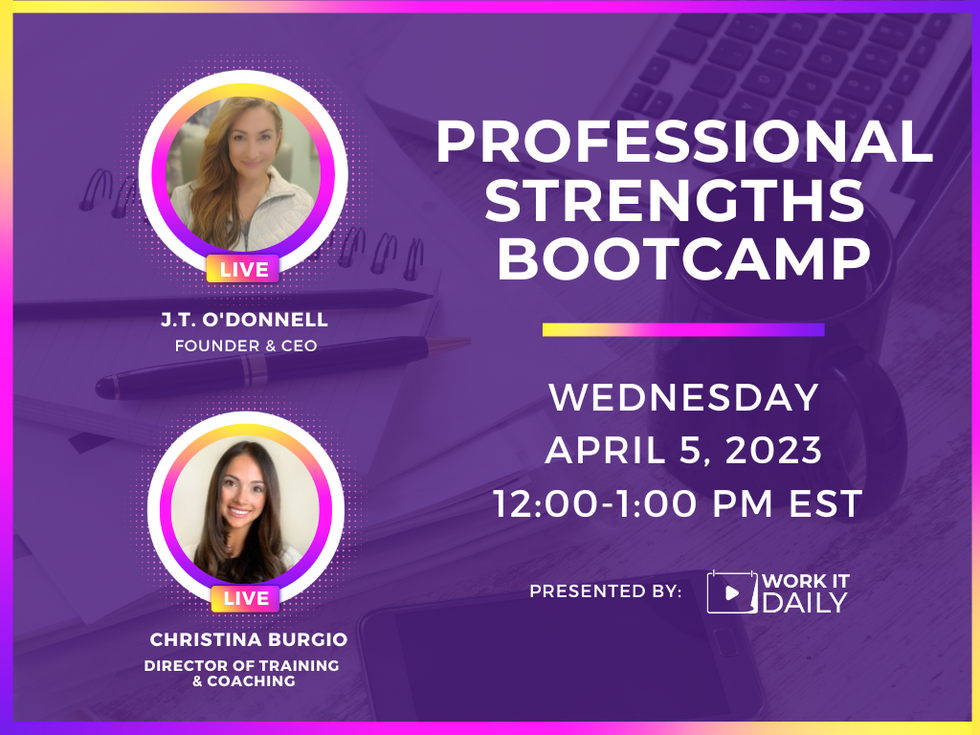
As a candidate, can you really say you âenjoyâ a job interview? From the moment you walk into the room, itâs the interviewer asking the questions and setting the agenda. You feel like a deer in the headlights.
This fear comes from feeling like you are not in control.
Take Back Control â Nicely!

It doesnât have to be that way. When you attend a job interview, you are attending a sales meeting and selling your flagship product: yourself!
Do salespeople sit and wait for their customers to ask questions about their product, hoping they ask the right ones? No! They ask questions themselves! This is how they find out what their customers’ needs are so that they can present their product as the solution that meets these needs.
If youâre in a job interview, you need to do the same!
How Can I Do It?

Interviews normally follow the same format. The interviewer starts the meeting with a few words of introduction. They tell you something about the position. (Usually, itâs on the job description, which you have already studied in detail.) Then they will ask you questions. They will give you about five minutes at the end of the interview to ask questions yourself.
If you let them follow this plan, your opportunity to really influence the conversation will be in the last five minutes of the interview. That is too late.
To turn your interview into a sales conversation, you need to ask your questions while the interviewer is telling you about the company and the job.
A sales professional asks questions to find out what the customer might need from his product. You need to find out what the employer needs from this position.
Try asking questions like this:
âMs. X, can you tell me how this position contributes to the companyâs success?â
If you want to be more direct, you could ask:
âMs. X, what problem does this position solve for the company?â or âWhat need does this position fulfill?â
Watch the interviewerâs reaction as they answer the question. If the interviewer seems happy to answer the question and gives you an in-depth answer, then you can ask for more details. Be sure to say, however, âIâm sorry for interrupting your flow,â and then ask the question.
One word of caution. NEVER say: âIâm sorry for interrupting your flow, but…â
The âbutâ is the killer. It communicates the idea that your apology was for nothing and that you didnât mean it.
Use That Information!

Once you get this information, refer back to it when you answer the interviewerâs questions.
If the interviewer asks you about your experience solving technical issues with customers, you can answer his question by saying: âThat sounds a lot like what I would be doing for your customers. Am I right?â
If the interviewer asks you about your knowledge or experience, answer with: âI did something similar to what we were saying earlier aboutâ¦â and then expand on your knowledge and experience as appropriate.
By referring back to the purpose of the position / problem it solves, this gives you the chance to position yourself as the candidate who is the solution to this problem.
Limitations

âYou need to know your interviewer:
Many jobs require multiple interviews with different interviewers. Each interviewer may perceive the role from a different perspective, so be ready to ask this question multiple times, and get different answers from different people.
If you are in a later interview, your interviewer may question why you are asking this again. Respond by explaining that different interviewers have different perceptions of the role and you want to be sure you are on the same page.
Your interviewer may not be comfortable with the question:
Not all interviewers have been trained to interview candidates. They donât always want to be doing this and they may think that they have better things to do with their time.
If their answers to your question are short, or they refuse to answer, then donât press it. You might want to think about their reaction, however. The question is not unreasonable. Why would they refuse to answer it?
If they donât want to interview you, then they donât want you as a colleague.
If they think you should shut up and answer the questions and âknow your place,â thatâs the kind of company youâll end up working at.
If they havenât got the time to handle one simple question from you, then you have to ask how serious the position is or how serious the company is in recruiting someone for it.
They Are Buying You, But You Are Also Buying Them.

This question is sometimes the human equivalent of a âpingâ test: software engineers send a signal to a website/server, etc. The response he gets back tells him a lot about the connection.
When you ask this question, watch your interviewer carefully.
Donât just listen to her answer. Watch her behavior.
This can tell you a lot about what kind of people you will be working with.
Let me know how you get on!
Further reading…
For more ideas about reading peopleâs behavior, please check out: Reading Peopleâs Emotions: A Beginnerâs Guide













































